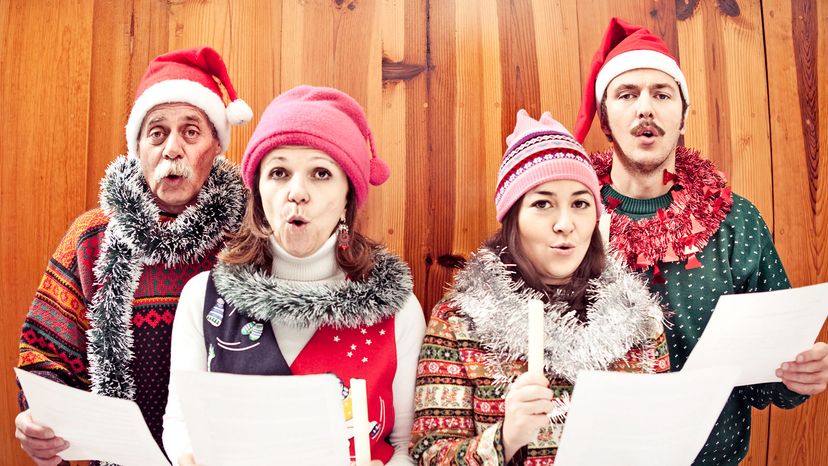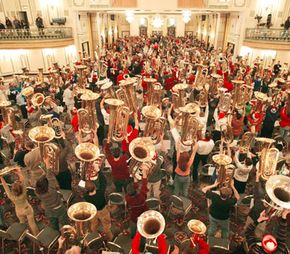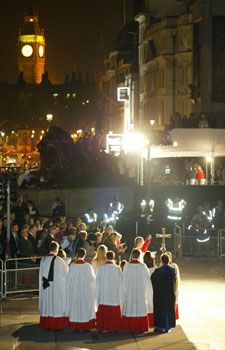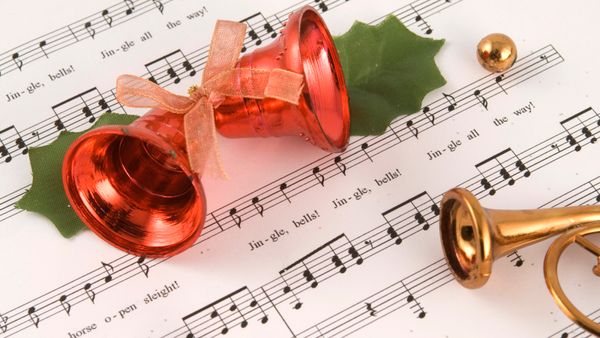
The idea of Christmas caroling brings to mind jolly bands of churchgoers, dressed in shawls and top hats, going door-to-door, also known as wassailing -- an Old Norse term -- to spread the spirit of Christmas through hymns. Whether it's "Deck the Halls," "Joy to the World" or "Silent Night," Christmas carols provide the soundtrack to the holidays.
Christmas Image Gallery
Advertisement
Carolers have been known to travel on foot, by truck or on horseback. Despite a recent re-examining of caroling's political correctness, including one incident where carolers were banned from marching in a prominent parade in Denver, it remains a popular Christmas tradition [source: The Denver Channel]. But how exactly did this tradition begin? Who wrote the carols? And why do we feel compelled to sing them on the front porch of a total stranger's home?
The root of the word "carol" lies not in song, but in dance. In Old French, "carole" means "kind of dance." In Latin, "choraula" means "a dance to the flute," and in Greek, "choraules" means "flute player who accompanies the choral dance." Although there are some carols centering around religion, the song were originally secular -- up-tempo melodies with alternating choruses and verses associated with traditional dances. Like many other Christmas traditions, caroling is also thought to have its roots in the pre-Christian celebration of the Festival of Yule, when Northern Europeans would come together to sing and dance to honor the Winter Solstice. As carols evolved into a Christian tradition, they became hymns, having little relation to any type of dance.
In the next section, we'll look at the history of caroling and why it's sometimes called "wassailing."
Advertisement


